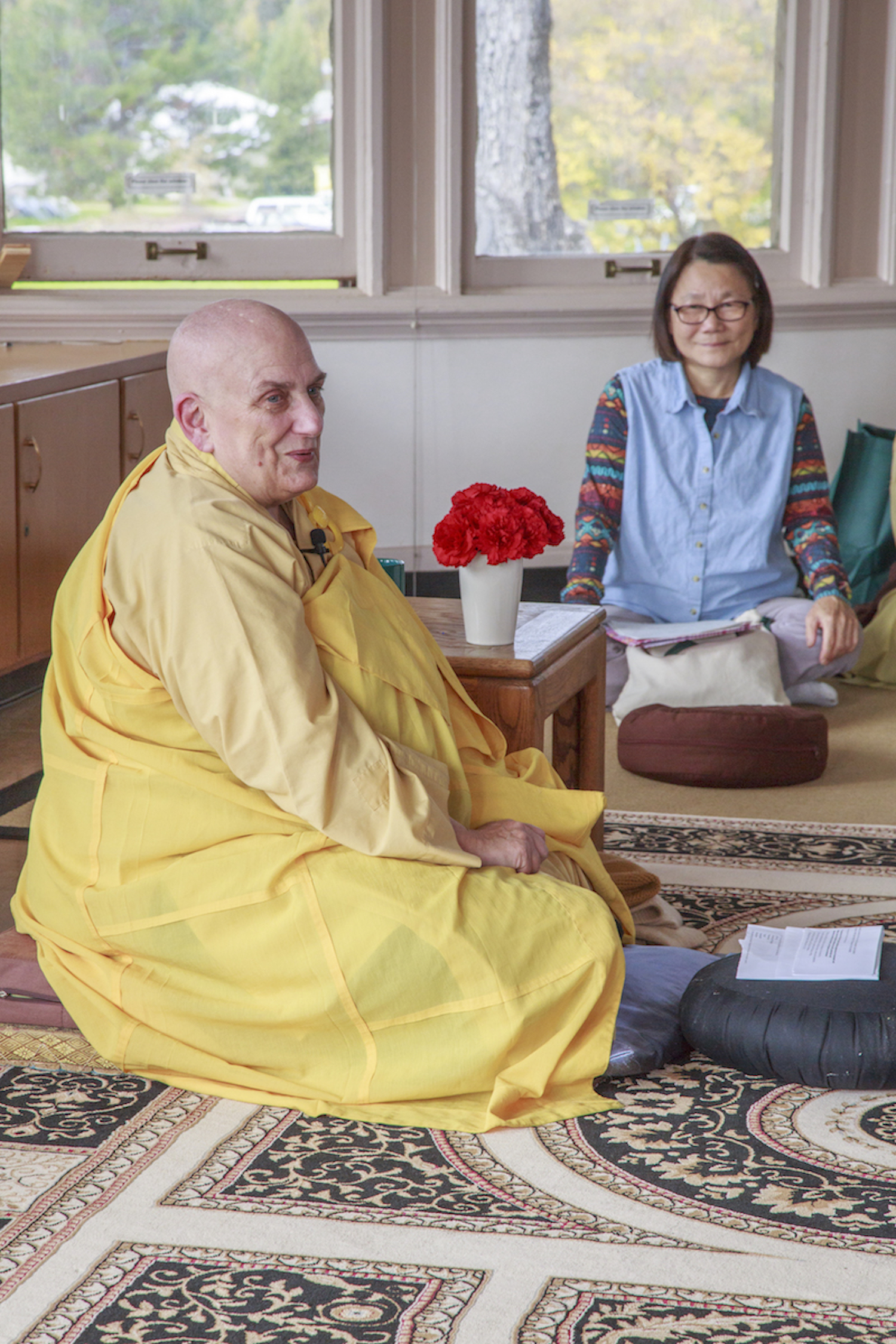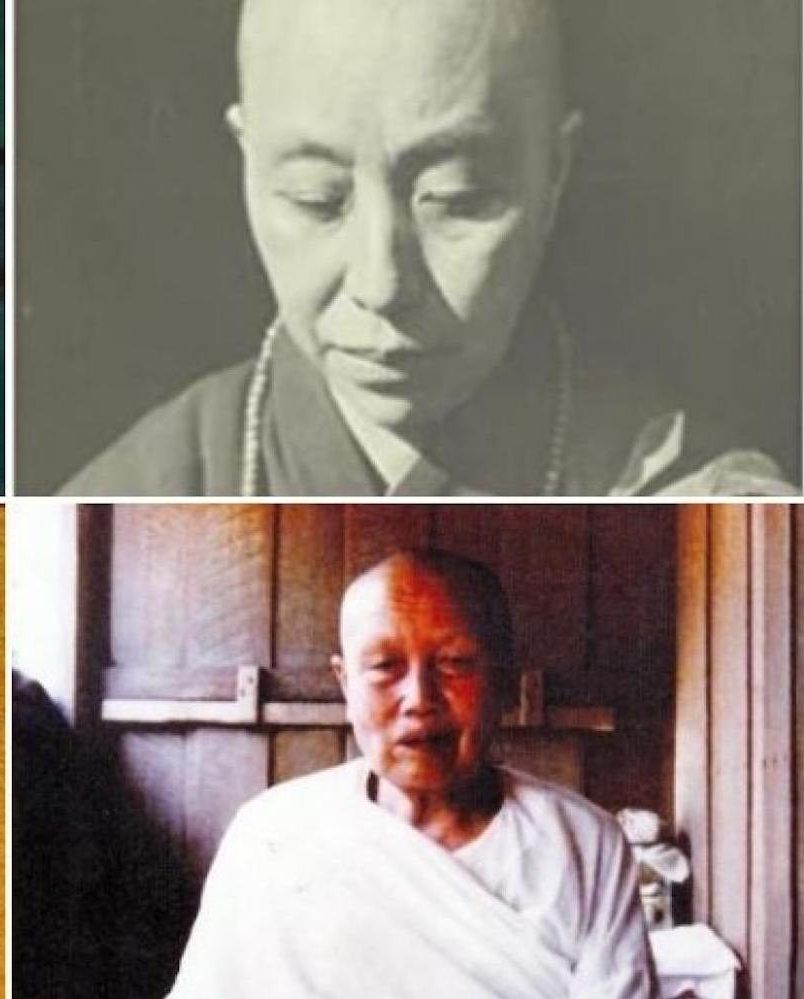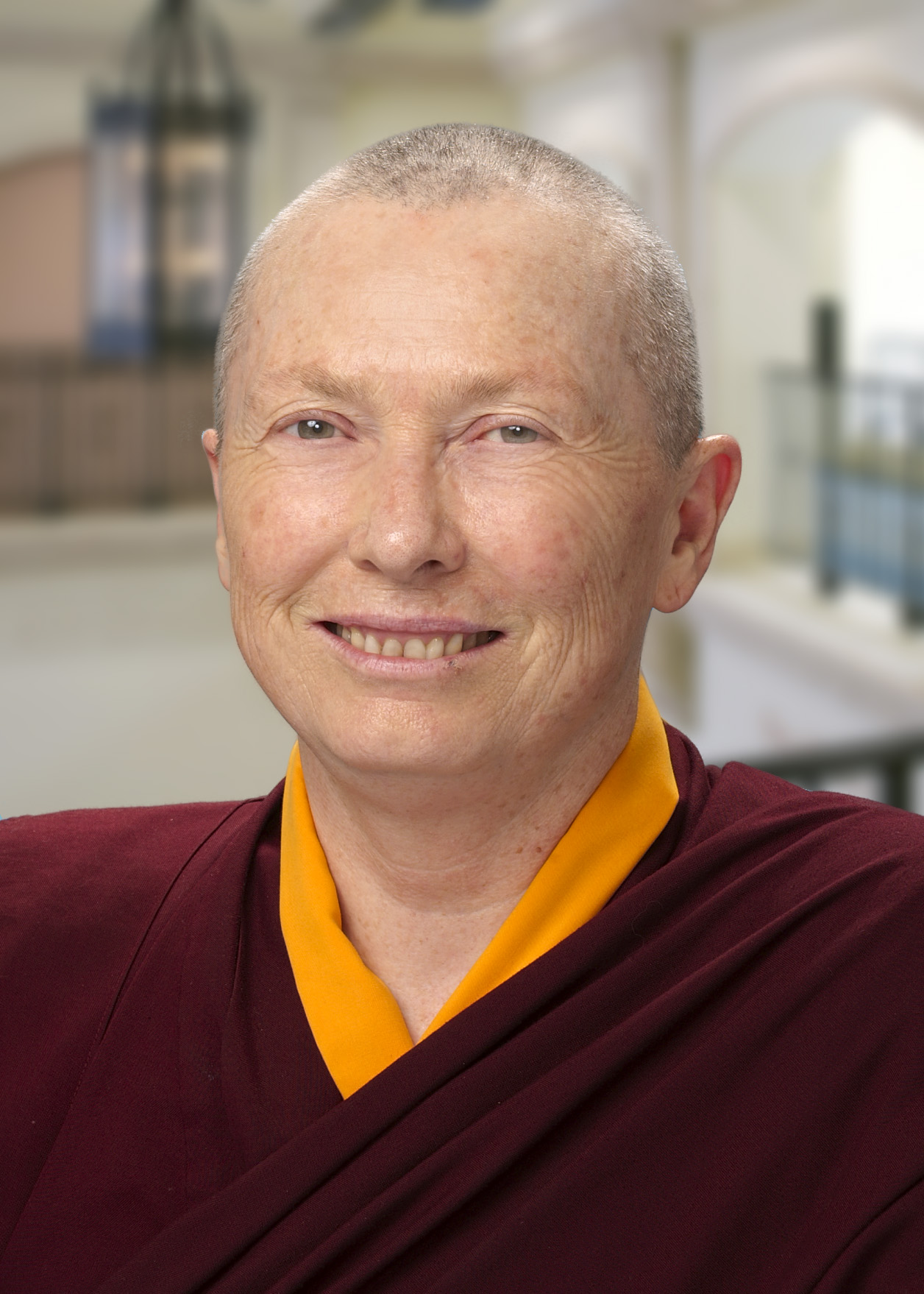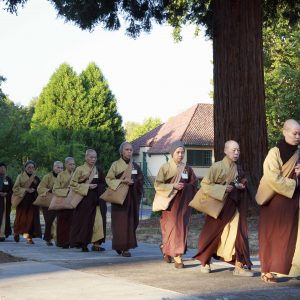
What Does A Nun Do?
Curious about what it's like to be a nun? Ponder no further with our interviews on their livelihood! We asked four Buddhist nuns to share their account on what Budhhist nuns do and what their lives entail.
Jin Xiang Shi
A Buddhist nun has a commitment to live frugally, being mindful of the effects of her actions, speech, and thoughts wherever she is, whether she is within the compound of a monastery—living or participating with fellow practitioners in rituals—or whether she is interacting with non-monastics.
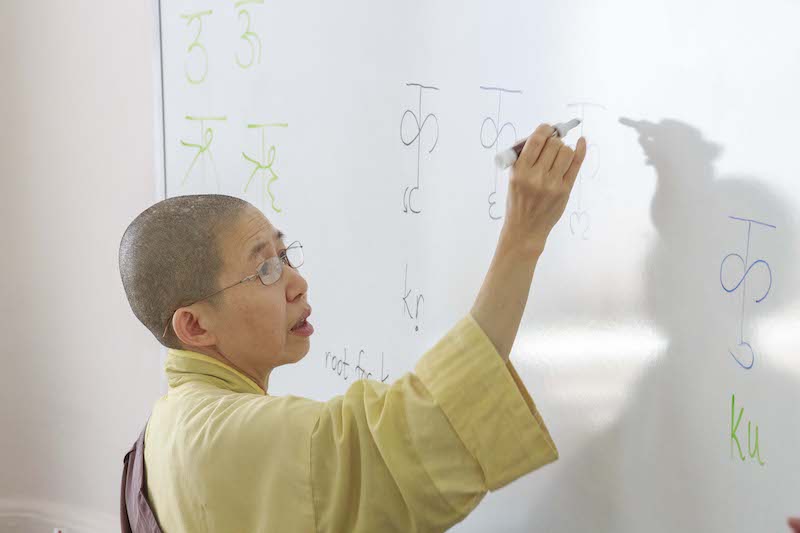
A Buddhist nun follows the conduct guidelines handed down by the Buddha and conducts herself harmoniously with those around her. By being part of a bigger family (sangha) than that of a personal one, one is made aware of a bigger calling.
One of the key practices involves non-harming and protecting of living beings, visible and invisible. Applying the universal principles (Dharma) handed down by the Buddha and guided by the wise instructions of her spiritual advisor, a nun lives in gratitude, being mindful of the kindness of her parents and the support of the laity.
The purpose of a nun’s life is to live a content, simple, and disciplined life so that over time she develops more clarity, patience, kindness and compassion, joy, and wisdom. Through her study/practice and sharing of Dharma, a nun hopes to bring a brighter light to the world.
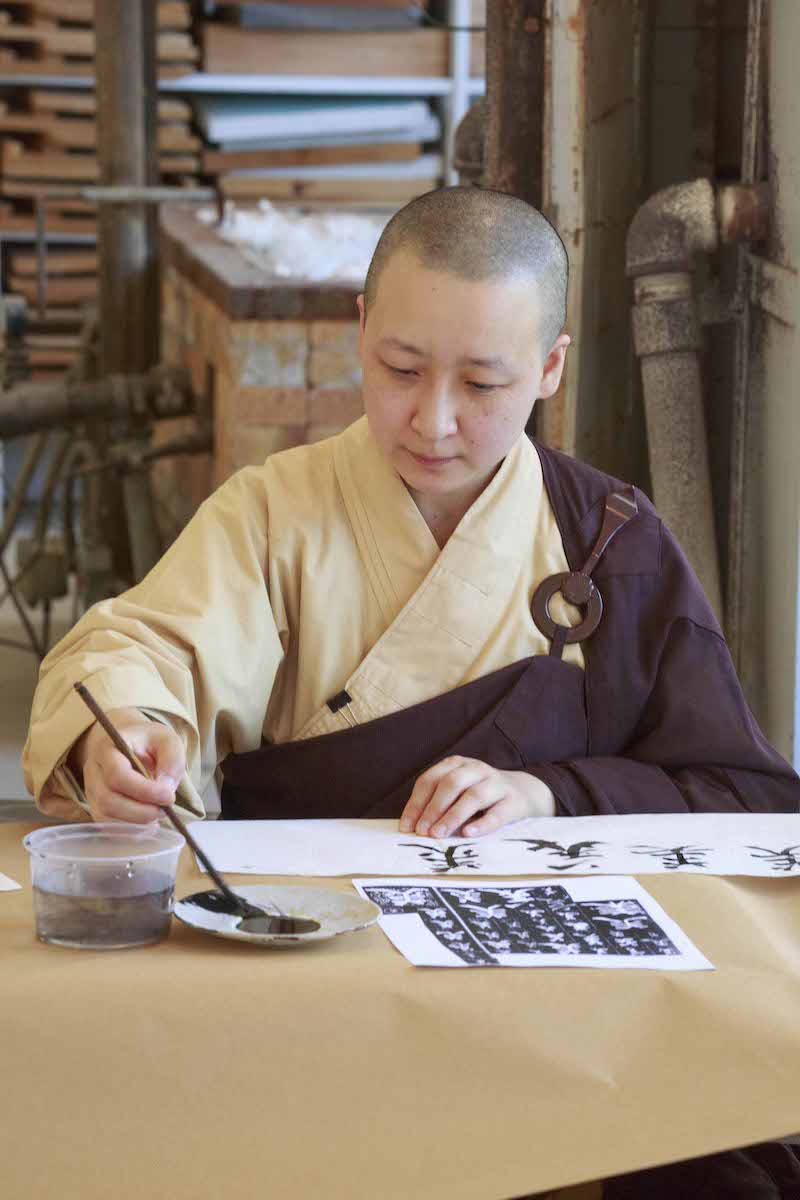
Jin An Shi
A Buddhist nun’s life at Dharma Realm Buddhist Association can be quite busy. There are mainly three categories of our activities on a daily basis:
1. Practice – group practices and self cultivation. This includes the participation in all (or most) of the daily/big ceremonies in the Buddha hall as well as our own personal practices.
2. Work – to support the monastery running smoothly and spread the Buddhadharma to the best of our abilities. In DRBA all the nuns have been trained to play different roles to fulfill different temple requirements. For example: you might work in the kitchen, financial department and the k-12 school at the same time.
3. Studying/Teaching – Novices and junior bhikshunis (nuns) have classes to study the precepts and other Buddhist concepts. Some senior nuns might teach or give public lectures.
Of course, any activities are just parts of Buddhist practice. No matter what we do, we should always reflect on our behavior and mind so that we can have our Buddha nature revealed bit by bit everyday.
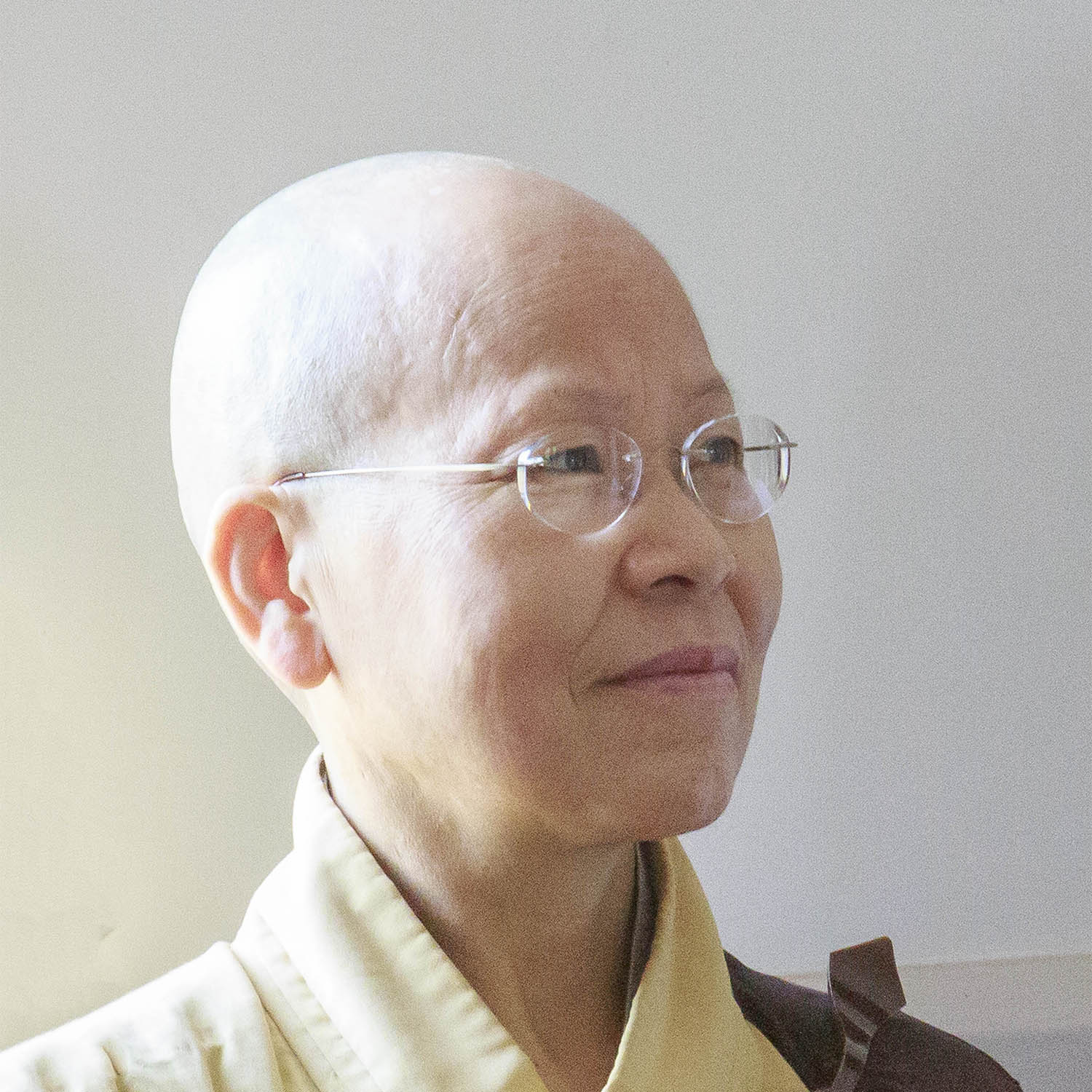 Jin Tyan Shi
Jin Tyan Shi
As a Buddhist nun in the City of Ten Thousands Buddhas [CTTB], we follow the Mahayana tradition. The founder of Dharma Realm Buddhist Association, Ven. Hsuan Hua left us a well-balanced and vigorous daily schedule to practice for our body and mind.
3:30AM We wake up to prepare for the Morning Ceremony.
4:00AM Morning Ceremony
5:00AM Bowing practice
6:00AM An hour of meditation or self-study
7:00AM We chant a chapter of the Avatamsaka Sutra.
8:00AM to 10:00AM We do community work, which includes: teaching at the university or k-12 schools; translation sessions; study as a student at DRBU; administrative work; counseling; kitchen duty, building maintenance, library, organic farm, landscaping, and on and on to support this community.
11:00AM is lunch time. We eat only one meal a day.
12:30PM to 2:00PM We do the Great Compassion Repentance Ceremony.
2:00PM to 5:00PM We do more community work.
5:00PM to 6:00PM Meditation
6:00PM We get ready for the 6:30pm Evening Ceremony.
6:30PM-7:30PM Evening Ceremony
7:30PM to 8:30PM is lecture time,
Then we do some personal cultivation till 10:30pm and that is our lights out for the day.
When people ask me what we do for fun, the answer is we participate in retreats, such as the Guan Yin retreats. We get a lot of fun and joy from chanting and singing the sutra! After seven days of retreat, our spirits are lifted.
Jin Deng Shi
When the Buddha speaks Dharma, the four assemblies always get together to attend: bhikshus, bhikshunis, upasaka, and upasika, which are monks, nuns, laymen, and laywomen.
So, what does a Buddhist nun do?
A laywoman, who has brought forth the bodhi resolve to attain enlightenment, decides to leave the home life and become a nun (bhikshuni), whose main job is cultivating the Way.
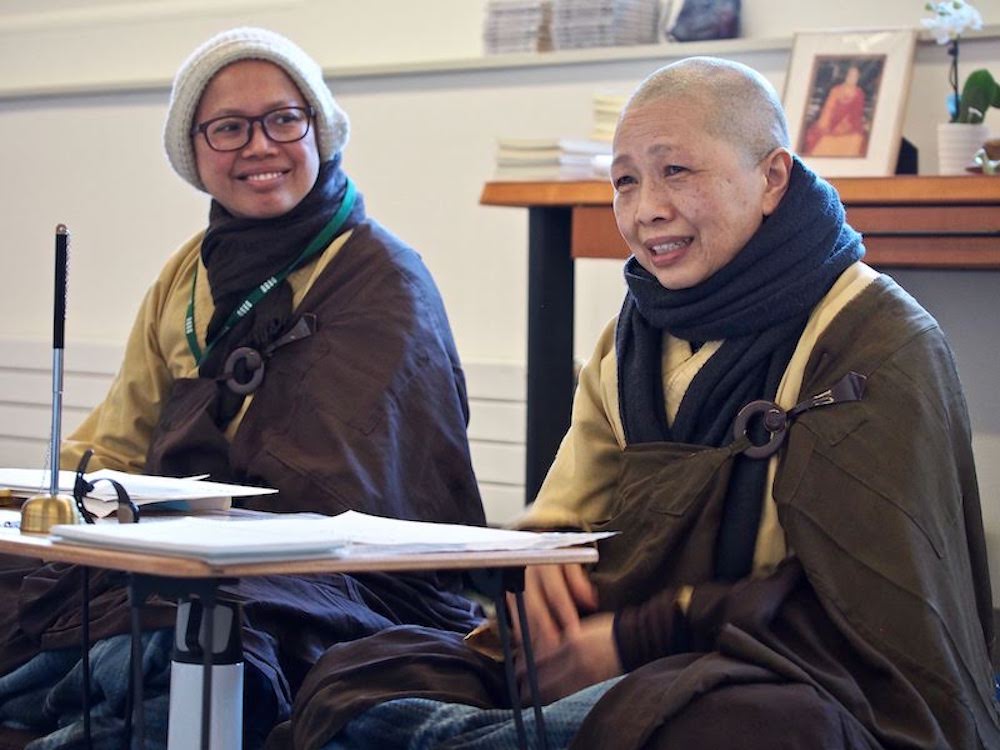
What is the bodhi resolve? It is a determined mind to seek/investigate/attain the truth, which in Buddhism is to get enlightened.
Venerable Master Hua said: “If one wants to cultivate the way, it is necessary to bring forth the bodhi resolve; after that, one should make great/firm vows in order to know what he or she is heading to.”
Making a vow is like having a boat to cross people over the suffering sea. Lots of people start to investigate Buddhism because they see sufferings in the world, and they bring forth the Bodhi mind to seek the truth; then, they make vows to help others be released from their pain.
However, we can also start by making small steps. For example, people who are volunteers at the hospitals, at the hospice … doing without any personal interest is a real compassionate mind.
Here at the monastery, people bring forth a bodhi mind in order to work in different areas/departments; in this way, they will be joyful in whatever they do. Nobody is forced to do anything.
What is cultivating the Way?
1. All activities at the monastery are set up by Venerable Master: morning and evening recitations, yearly dharma assemblies, listening to the lectures, working at different departments, relationships between people, etc.; this is cultivating wisdom, blessings, and creating affinities with each other.
2. All the while, do not be careless about the three poisons: greed, anger, and delusion; and practice diligently precepts, samadhi, and wisdom. Reflect inwardly every day, every moment.
3. Consider the 37 factors of enlightenment in our daily life:
When Shariputra started to cultivate, his teacher, Shakyamuni Buddha, asked him: do you want to have wisdom and be intelligent? For sure the answer was YES. His instruction was to do what we do at the Buddha Hall everyday.
